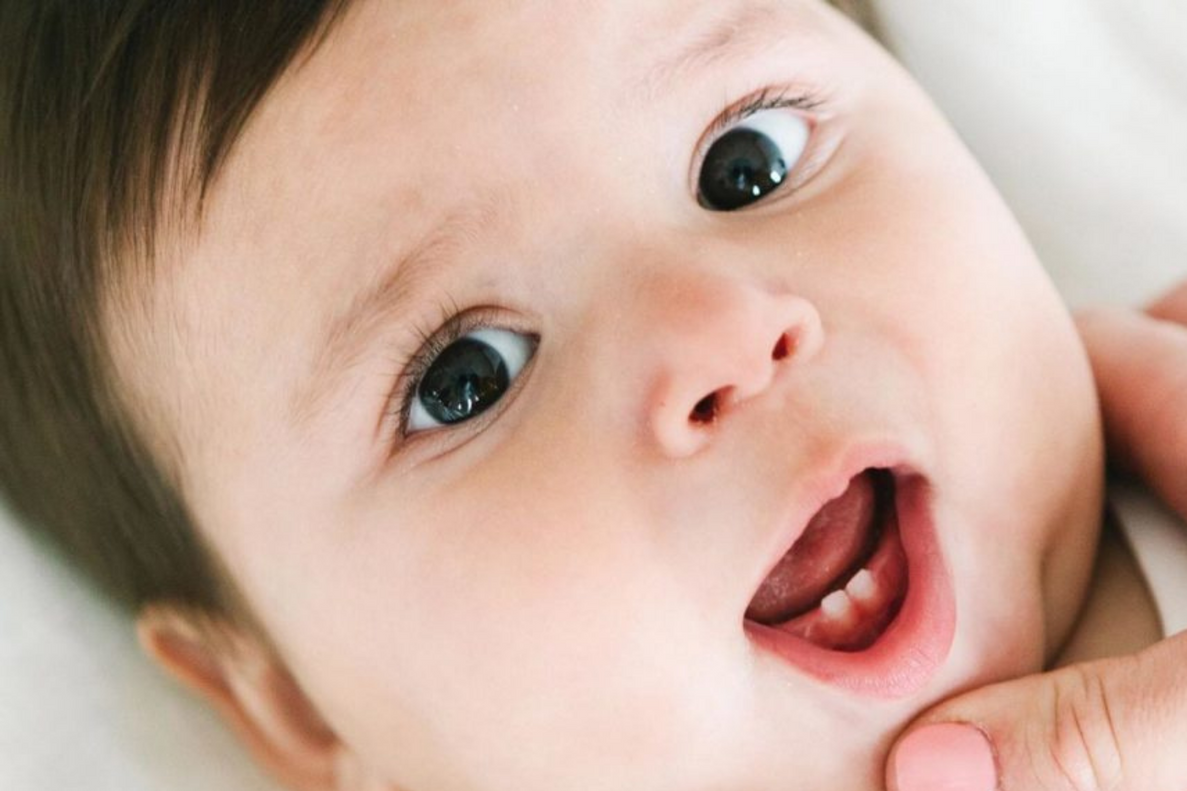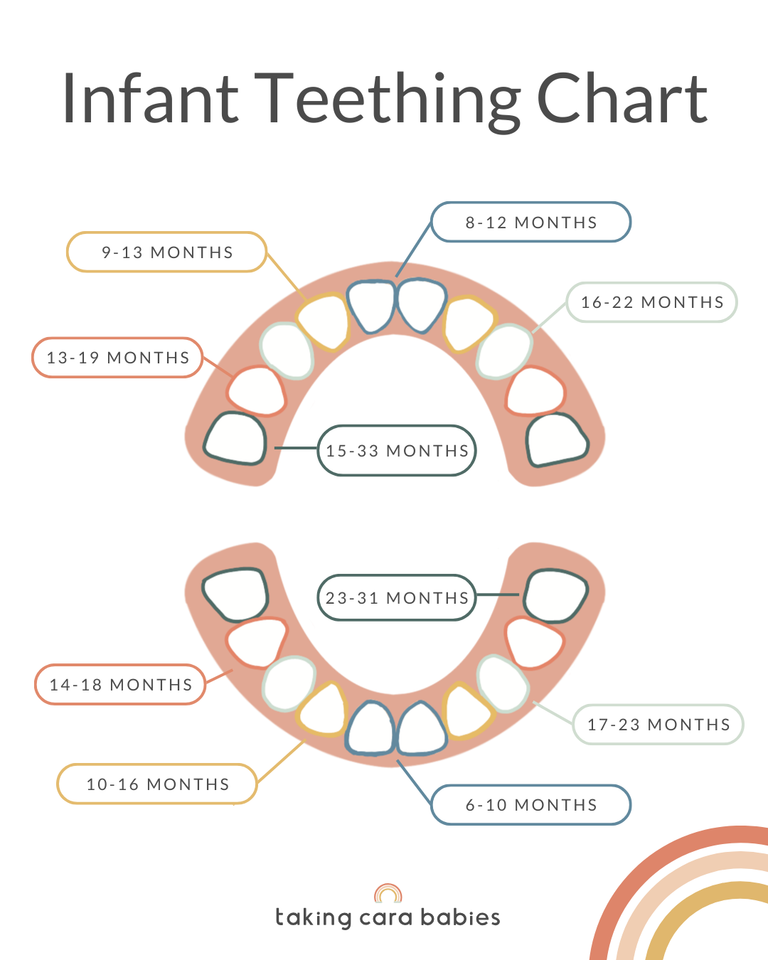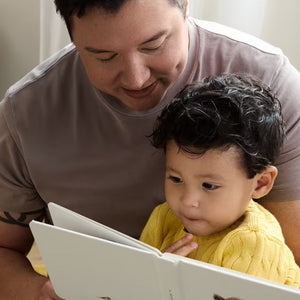Teething- UGH! The very word causes parents everywhere to cringe and have visions of drooling, fussy babies.
We’ll go over symptoms of teething, symptoms that are often confused with teething, ways to soothe inflamed gums, common teething toys, things to avoid with teething babies, acetaminophen vs. ibuprofen usage, and tips to help your teething baby to sleep.
How long does teething last?
Teething lasts from approximately 5-30 months of age, but the actual PAIN associated with teething only lasts for about 24-72 hours prior to the tooth eruption. Once the tooth is through the gum, most of the pain is gone.
What are the signs of teething?
Here are signs of teething: (1)

Text version
| Signs of Teething | Not Signs of Teething |
|---|---|
| Swollen gums with white nubs | Fever (greater than 100.4°F, 38°C) |
| Irritability* | Vomiting/diarrhea |
| Less interested in solids* | Congestion/cough |
| Chewing on fingers and toys* | Intense crying |
| Increased drooling* | Refusing breast/bottle |
| *Can also occur as a normal part of baby development. The only SURE sign of teething is seeing a tooth. | None |
How can I help?
-
Try teething toys.
-
Give baby cold washcloths to gnaw.
-
Massage the gums.
-
Offer comfort (hold, babywear, rock, nurse/feed, etc.).
-
Avoid amber necklaces (2) and teething gels.(3)
-
Talk to your doctor before trying anything homeopathic.
-
Administer pain relievers if needed.
(Teething pain is inflammation of the gums. That’s why ibuprofen is typically a more effective pain reliever for teething. However, baby must be 6 months of age or older to use Motrin. Use acetaminophen instead for babies younger than 6 months.)
What about sleep during teething?
Remember, every baby is different. However, those with a strong sleep foundation tend to handle nights and naps better during teething.
The first and best advice about teething and baby sleep:
Lay a strong sleep foundation in the first few months of your baby’s life. My no-cry newborn sleep class gives you the tools to help create a good little sleeper from the start. Having a strong foundation in place PRIOR to teething is so helpful!
If your baby is 5–24 months, there’s still hope.
The ABCs of Sleep will give you a plan to achieve 10-12 hour nights of independent sleep in the crib. This will be a plan to follow through regressions, teething, illnesses, and setbacks too. Many of our families report that their little ones simply wake well-rested in the morning with a new tooth!
But let’s say you have a great little sleeper who is suddenly struggling…
First, let’s make sure it really is only teething. Remember, intense crying is typically NOT teething.(1) You could be seeing signs of an illness or something that requires further investigation.
If it is teething…
First, understand that consistency is still so important. Maintain your normal routine, bedtime, and approach to night wakings.
If your little one is struggling with pain, do what needs to be done to help soothe him. It’s always okay to comfort your baby while he’s in pain. A few nights won’t derail a great little sleeper. Once that tooth pops through, go right back to your night wakings approach, and sleep will return to normal quickly.
Teething can seem intimidating at first, but with the right tools and understanding: You’ve got this!








